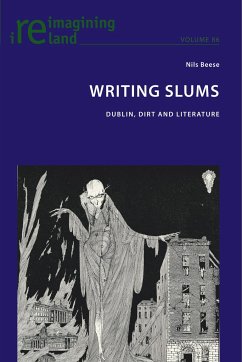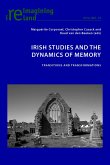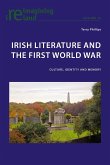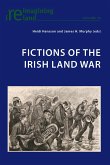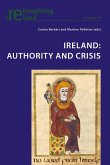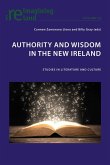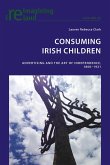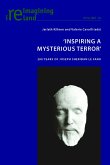Dublin's slums were once considered the worst in Europe. The city's tenements were omnipresent and their inhabitants were plagued by poverty. Illuminating the intricate relationship between the «dirty» cityscape and Dublin literature from 1880 to 1920, this seminal book offers new socio-historical, cultural and political insights into one of the most interesting periods of Irish literature and history.
As well as delineating the characteristics of Dublin slum literature as a genre, the book challenges general assumptions about the Literary Revival as a mainly rural movement and discusses representations of slums in a variety of texts by «Alpha and Omega», James Connolly, Fannie Gallaher, May Laffan, Seumas O'Sullivan, Frederick Ryan, James Stephens, Katharine Tynan and many others. In addition, it reassesses W. B. Yeats's and James Joyce's literary genealogy in the context of the urban literary-historical discourse and analyses the impact of slums on their writing strategies. This work will be essential reading for scholars and students of Irish literature and cultural history.
As well as delineating the characteristics of Dublin slum literature as a genre, the book challenges general assumptions about the Literary Revival as a mainly rural movement and discusses representations of slums in a variety of texts by «Alpha and Omega», James Connolly, Fannie Gallaher, May Laffan, Seumas O'Sullivan, Frederick Ryan, James Stephens, Katharine Tynan and many others. In addition, it reassesses W. B. Yeats's and James Joyce's literary genealogy in the context of the urban literary-historical discourse and analyses the impact of slums on their writing strategies. This work will be essential reading for scholars and students of Irish literature and cultural history.
«Voices from a hidden Dublin resound throughout Nils Beese's book. His analysis combines a fine alertness to a diversity of texts with a sure command of the wider sociocultural matrices out of which each one sprang. An astonishing, necessary work.» (Declan Kiberd, University of Notre Dame)
«Writing Slums is a vital and fascinating work of literary and cultural criticism which explores new territory in Irish Studies. Nils Beese provides a brilliant and meticulous account of the realities and myths of slum life as it was recorded and imagined in Irish writing, ranging from the work of May Laffan and Fannie Gallaher, pioneers of Irish slum fiction, to the significance of slums in the modernist aesthetics of W. B. Yeats and James Joyce. In this engaging study, Beese teaches us to re-think the history of the Irish revival, and to re-calibrate our understanding of class in Irish culture.» (John Brannigan, University College Dublin)
«This is an engrossing and ground-breaking book, which enhances significantly our knowledge of how Dublin's slums and its poor have been represented in Irish literature. It is methodically researched, with a deep understanding of the postcolonial context combined with a refreshing class analysis of the dynamics of imperialism in urban Ireland. Writing Slums: Dublin, Dirt and Literature suggests the rich possibilities for further research in this area, and is a vital resource for Irish Studies scholars, not least those working on Yeats, Joyce, Stephens, Connolly, modernism, revivalism, the popular slum text, Irish working-class writing, or the history of Dublin city. Theorising the slums as a cultural signifier, Nils Beese adds an assured and original new chapter to our understanding of Dublin, of the processes of colonisation, and of the importance of representation in both.» (Michael Pierse, Queen's University Belfast)
«Beese's genre study of pre-Revivalist Dublin slum fiction shows a 'literary battleground' being played out against the birth of Irish modernism. It offers a unique and welcome perspective on the study of urban representations in Irish literature.» (Elizabeth Mannion, author of The Urban Plays of the Early Abbey Theatre: Beyond O'Casey)
«This is a thoughtfully theorised, well-researched contribution to Irish Studies. With real originality it supplies a convincing context for innovative readings of the careers of both Yeats and Joyce. Furthermore, it brilliantly enriches our understanding of the Irish Literary Revival, encompassing as it does, for example, the writings of James Connolly within that movement.» (Terence Brown, Trinity College Dublin)
«Writing Slums is a vital and fascinating work of literary and cultural criticism which explores new territory in Irish Studies. Nils Beese provides a brilliant and meticulous account of the realities and myths of slum life as it was recorded and imagined in Irish writing, ranging from the work of May Laffan and Fannie Gallaher, pioneers of Irish slum fiction, to the significance of slums in the modernist aesthetics of W. B. Yeats and James Joyce. In this engaging study, Beese teaches us to re-think the history of the Irish revival, and to re-calibrate our understanding of class in Irish culture.» (John Brannigan, University College Dublin)
«This is an engrossing and ground-breaking book, which enhances significantly our knowledge of how Dublin's slums and its poor have been represented in Irish literature. It is methodically researched, with a deep understanding of the postcolonial context combined with a refreshing class analysis of the dynamics of imperialism in urban Ireland. Writing Slums: Dublin, Dirt and Literature suggests the rich possibilities for further research in this area, and is a vital resource for Irish Studies scholars, not least those working on Yeats, Joyce, Stephens, Connolly, modernism, revivalism, the popular slum text, Irish working-class writing, or the history of Dublin city. Theorising the slums as a cultural signifier, Nils Beese adds an assured and original new chapter to our understanding of Dublin, of the processes of colonisation, and of the importance of representation in both.» (Michael Pierse, Queen's University Belfast)
«Beese's genre study of pre-Revivalist Dublin slum fiction shows a 'literary battleground' being played out against the birth of Irish modernism. It offers a unique and welcome perspective on the study of urban representations in Irish literature.» (Elizabeth Mannion, author of The Urban Plays of the Early Abbey Theatre: Beyond O'Casey)
«This is a thoughtfully theorised, well-researched contribution to Irish Studies. With real originality it supplies a convincing context for innovative readings of the careers of both Yeats and Joyce. Furthermore, it brilliantly enriches our understanding of the Irish Literary Revival, encompassing as it does, for example, the writings of James Connolly within that movement.» (Terence Brown, Trinity College Dublin)

